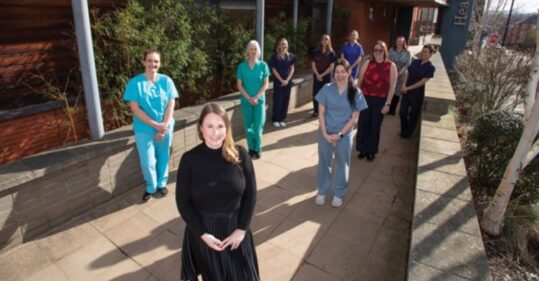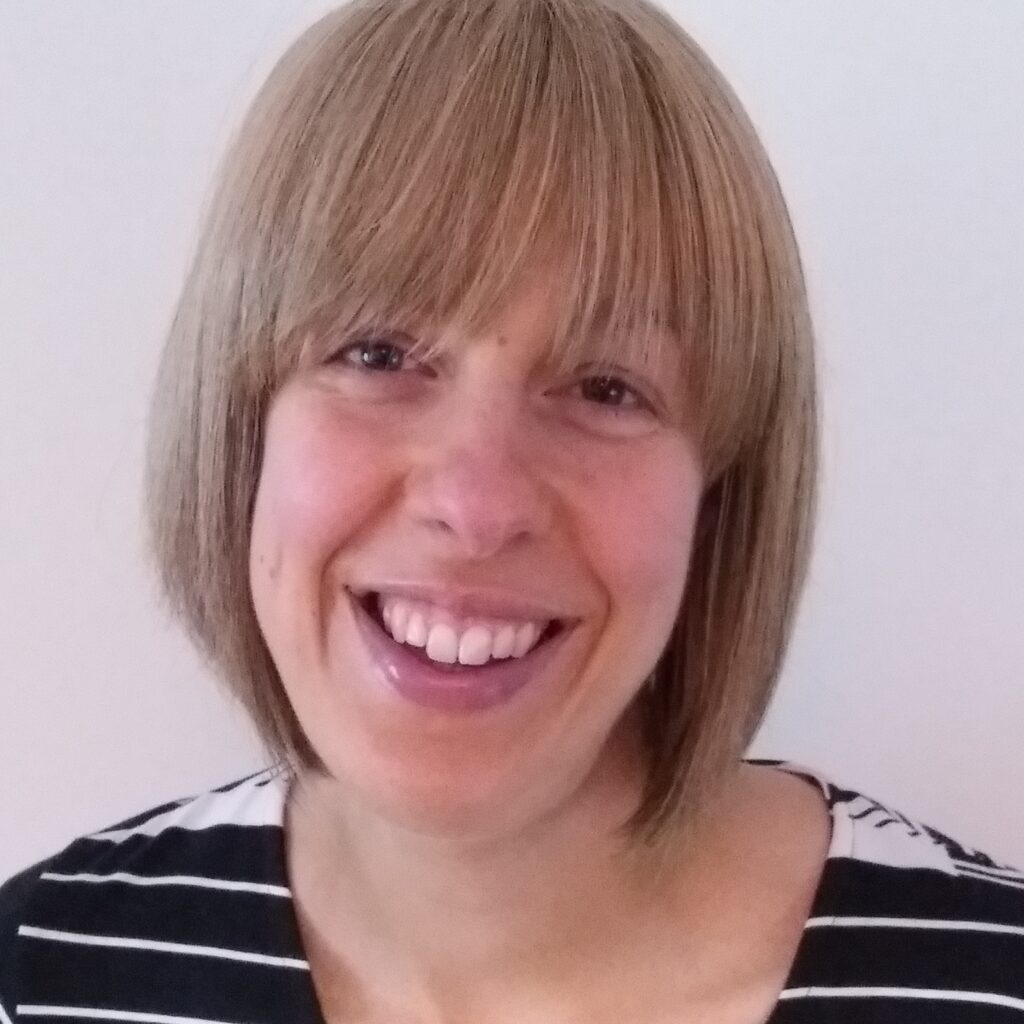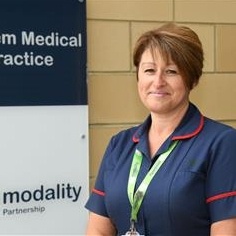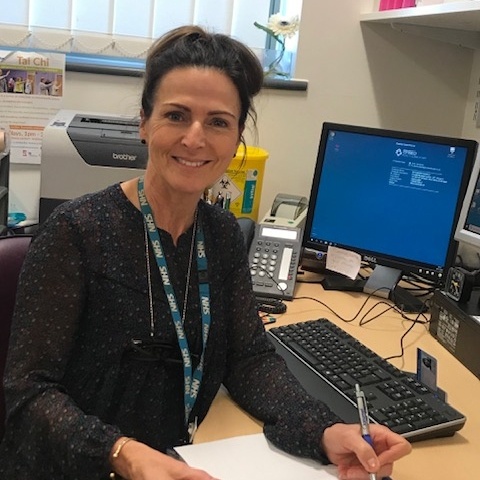Sheffield united: Q&A with this year’s practice nursing award winners

Chatting to seven nurses via Zoom is no easy feat, especially when a fire alarm goes off in the middle of the interview, as happened when Nursing in Practice spoke to the University of Sheffield Health Team. The winners of the practice nursing category at the 2020 General Practice Awards, run by Nursing in Practice’s publisher Cogora, returned to their seats 20 minutes later completely unfazed, showing just how professional and calm they can be in a crisis. The close-knit team took time out of their busy days, nursing students, to talk about the work that led to their award win.
The University of Sheffield health team caters to around 42,000 patients, mostly aged between 18 and 25.
Judges said the team impressed them by being ‘proactive, innovative, open to change and putting their unique patient population in the centre of everything they do’. This included their work to improve access to telephone triage, and create a drop-in sexual health clinic and group asthma sessions.
Now in their 12th year, the General Practice Awards were created to celebrate the remarkable work carried out by Britain’s primary care professionals.
Nursing in Practice spoke to:
Emma de Chenu, nurse practitioner and team leader
Lucy Adams, nurse practitioner
Shannon Hovers, trainee nurse associate
Lisa Moat, practice nurse
Lauren Fletcher, practice nurse
Nisa Duttine, practice nurse
Anna Young, nurse practitioner
Other team members include: Marie Highfield, nurse practitioner; Rachael Reynolds, nurse practitioner; Hayley Billingsley, practice nurse; Tselane Mead, practice nurse; and Alison Twibell, senior healthcare assistant.
Related Article: NHS 10-year plan: What does it mean for nursing?
I hear this award win comes at the end of a tough year, but a successful one for your team?
Emma: It was great to win the award, especially after such a tough year during the pandemic. [But also] one of our advanced nurse practitioners, Anna Young, achieved a first in her advanced practice MSc, two of our nurses completed the first year of their Advanced Practice MSc, and our trainee nurse associate, Shannon Hovers, completed the first year of her training, all with excellent results.
Are there any secrets behind your achievements?
Emma: We have been careful to have structure and development all the way, from healthcare assistants to trainee nurse associates, practice nurses to advanced clinical practitioners. We’ve also got lots of nurse-led services, which I think have improved patient care a lot. We’ve increased the size of the nursing team in recent years, which has done a really good job of improving access for patients.
Your nomination mentioned brilliant work with sexual health. What does that involve?
Emma: The sexual health drop-in clinic launched before the pandemic. It really targeted our demographic and the needs of our patients.
The drop-in clinic improved patient access across the board. Instead of normal clinics being filled with patients who had concerns about sexual health, those patients could come to specific clinics, which freed up nurse appointments to do other important work. A lot of what we were doing before was asymptomatic screening of worried people who didn’t necessarily need appointments with nurses across the week. It was a win-win for patients and for appointments.
During Covid, we’re doing most sexual health work by telephone, and we post out sexual health test kits in a quick turnaround time. If anything, we’re still probably doing the same volume of patient contact. It’s just the way they access the service is slightly different. But I think all of us are looking forward to being able to have the drop-in clinics again.
Lisa: We’ve really developed sexual health accessibility, screening and tried to make the sexual health clinics more of a one-stop shop to get people in and out in the timeframe they want. I think people with sexual health issues think ‘the problem is now’. So, if appointments are booked for two weeks in advance, it’s either gone and people don’t attend the appointment, or they’ve gone down a different avenue. I think that the drop-in service is more able to cater to their needs. Patients have responded well. Even when they have waited – probably on average about half an hour – we’ve had no complaints at all.
It’s a shame Covid came when it did because [the drop-in clinic] had really taken off. We’ve had to stop a lot of it. We still advertise how important it is to get sexual health screening, but we haven’t been able to do the drop-in service.
Lauren: I came a month ago from another practice. In my previous role, I didn’t do as much sexual health and contraception because of population differences – and I’m really enjoying the opportunity to do more of that. It’s such a specialist service with this age group. We’ve got that we need to tailor it to what the patient actually wants, as opposed to what we think would be better.
Your group asthma sessions were also cited in the nomination. Tell us about that.
Nisa: We’re obviously not able to do the group asthma sessions during Covid where we give information to the students, although we are looking at doing it via Zoom and how effective that will be. But the group sessions were mainly aimed at freshers, who are new to university. We tried to capture them when they were coming in from home.
I think a lot of them don’t really know how to get proper treatment for their asthma, so we are telling them how to get prescriptions, what to do in emergencies and how to deal with their health when they’re no longer at home, when their mum or dad might have got their prescription sorted for them.
The feedback was really positive. We are thinking about doing smaller groups so people can interact on an individual basis more too. I think going forward we’ll probably carry on doing more of [the asthma sessions] over the phone and video, as it’s useful in some instances.
In what other ways have you tailored services to your particular population?
Emma: One of the benefits of having the same large cohort of patients is we can tailor services to them directly, and work out what they need, and work out what works well with them. One example is introducing telephone triage, which we have had for six years ago now, which really changed access for patients. It’s entirely nurse led, and in my opinion has improved access greatly. It’s also very safe. If the patient is asking for an urgent appointment, they all get to speak to a nurse on the same day. Otherwise our appointments are within two weeks, so nobody’s left for long. That works really well for this age group. They’re really tech savvy, very good at retaining information, and have good understanding as well.
How are nurses nurtured and developed at the practice?
Nisa: There’s a real appetite for developing roles among practice nurses. I also think that if you’ve got the initiative to bring an idea forward, you’re very openly welcomed and nurtured, and management and doctors will happily support you with that.
Related Article: Nursing in Practice launches ‘How Nurses Count’ campaign
Lisa: For example, my advanced clinical practitioner training hasn’t been a solo event, it’s definitely been a team event. It’s a lot of work but having the support makes a big difference.
Lucy: I think it’s worth singing the praises of the team when you’re not on specific training pathways as well. The support for me has been phenomenal, even though I’m not doing any specific training. It’s a great team, both academically and in terms of professional support.
How has Covid impacted the practice?
Lucy: We’re trying to reduce the number of contacts we have to keep everyone safe but we’re still seeing patients. We’ve set systems so we can see people when they need to be seen safely.
Anna: Conducting appointments over the phone has also enabled us to provide care to all patients when they’re not in Sheffield. During Covid, a lot of the students went home and are still at home, so there is still a significant portion of our patients that aren’t in Sheffield. And yet we’re still providing that care in a seamless way. If they need face-to-face assessment or an acute assessment, we can triage and signpost them. We’re still providing asthma, diabetes and-day-to-day care over the phone. That’s been unique because previously, if they went home for summer our workload would drop. But it’s been full pelt the whole time.
A lot of them need reassurance. I think being able to speak to them on the phone, rather than [requiring them to book] an appointment, can give them reassurance that the symptoms are likely self-limiting. You can do health education over the phone, you can signpost to websites with information about their illness, you can teach them how to be self-sufficient. They’re so grateful not to make themselves more vulnerable sitting in a waiting room to be reassured that everything is normal. I think that’s been a real bonus.
Emma: It’s important to note that practice nurses still have face-to-face clinics every day, though I think nurse practitioners are feeling it a little bit more as we are perhaps are doing more telephone work. It’s going to be one of the biggest challenges – how we manage face-to-face work versus telephone.
As well as asthma and sexual health, contraception is another area that patients have found so much more accessible by phone. Going forward, we’re going to look at increasing our telephone service so we are still in contact with and supporting our patients over summer too.
Other nurses shortlisted for the award
Carley Moore, lead nurse at Marcham Road Practice, Abingdon, Oxfordshire

Ms Moore said: ‘I was over the moon to be shortlisted for this award. I am very lucky to work with amazing people and I am very grateful to them. There are so many people that have kindly given their time to help me in so many different ways.’
Her team added: ‘Carley is a natural leader. Her door is always open and she never makes anyone feel as if they are asking a ‘silly question’ or bothering her. She has a warm personality which makes her very easy to talk to. She cares about her team and encourages us all to speak to her if we have any worries. She has great communication skills and keeps us all updated verbally or in our communication file. She is also a fantastic nurse with vast knowledge.’
Rachel Barnes, lead nurse for research and clinical development at Diadem Medical Practice, Hull
Related Article: ‘Patients not prisoners’: Palliative care nursing behind bars

Ms Barnes said: ‘My lead nurse role never stops, with 12 staff across two sites. I carry out one-to-ones with my staff, support them in their roles and sometimes in their personal life, all through daily work life. I call them my work family. I also take part in the induction with junior doctors as we are a training organisation. The research part of my role has been the most difficult because of time constraints, but I have a wonderful research administrator who keeps me on track. I screen many patients for different projects and help make decisions along with the GPs. I am also a mentor on the GPN ready scheme for new practice nurses. It’s a fulfilling role, which also means I am kept up to date as you cannot teach new staff out-of-date information. I have a lot of job satisfaction seeing these staff becoming qualified and growing into their new roles. I can truly say I love my job.’
Karen Waller, practice nurse at Foxhill Medical Centre in Sheffield

Ms Waller said: ‘This shortlisting was a big surprise. And while it means a lot to have my hard work recognised, this nomination is for my whole team who work tirelessly to deliver good care and support each other without exception. We have a high achievement for child immunisation targets, using systems to chase up poor attenders and a robust set of searches to keep track of overdue immunisations. My area of special interest is respiratory care, but I chose to remain in primary care, as I love the holistic care we are able to deliver. I have been in nursing for 40 years and 22 years of that in general practice. Without hesitation I would encourage young nurses into primary care; it is interesting, always challenging.’
Ruth Jacobs, formerly a practice nurse at Tollerton Surgery in York

Ms Jacobs said: ‘I was shocked and humbled to be shortlisted for the award, especially as someone new to practice nursing. I was previously a community nurse and had only been in practice nursing for just over year when I was nominated. I’m particularly passionate about long-term conditions management. In my previous role, I worked predominately with these. I found that building up positive relationships with patients, looking at individuals holistically and focusing on continuity of care were key when helping patients improve their quality of life. That remains true as a practice nurse. I’m proud of working hard to get where I am. You don’t go into nursing to earn a fortune or receive praise. You go into it because you wish to have a positive impact.’
Want to nominate yourself or a colleague for recognition of your work over the last year? Details of how to enter can be found at www.generalpracticeawards.co.uk.

See how our symptom tool can help you make better sense of patient presentations
Click here to search a symptom


One of the benefits of having the same large cohort of patients is we can tailor services to them directly, and work out what they need, and work out what works well with them.



